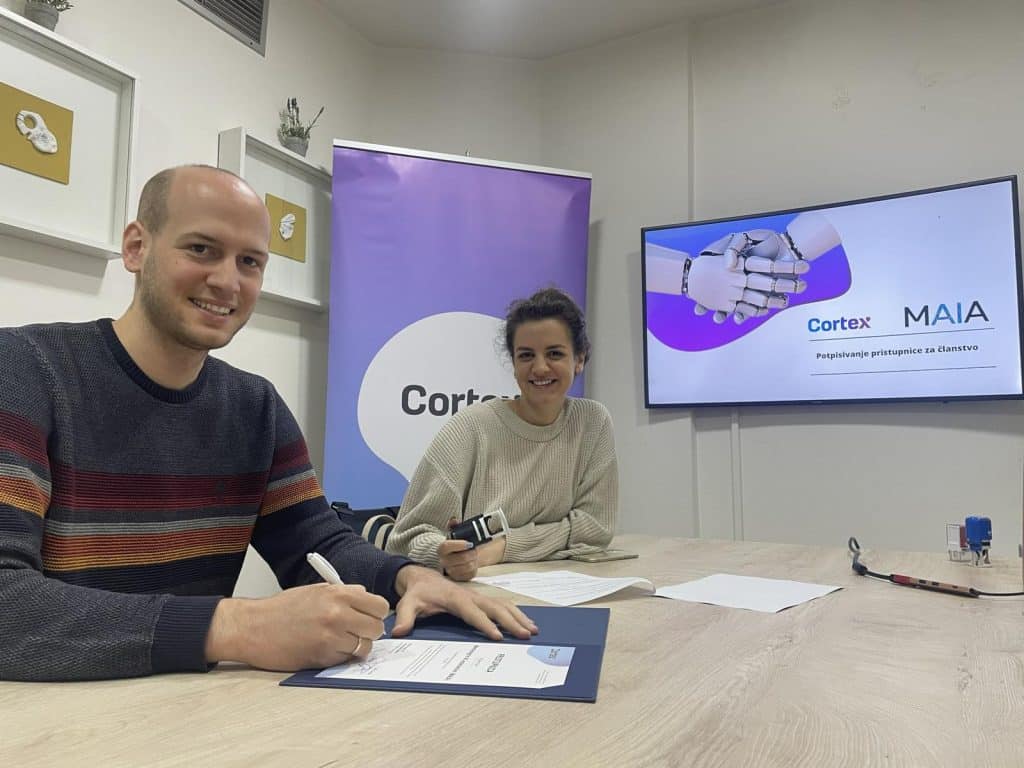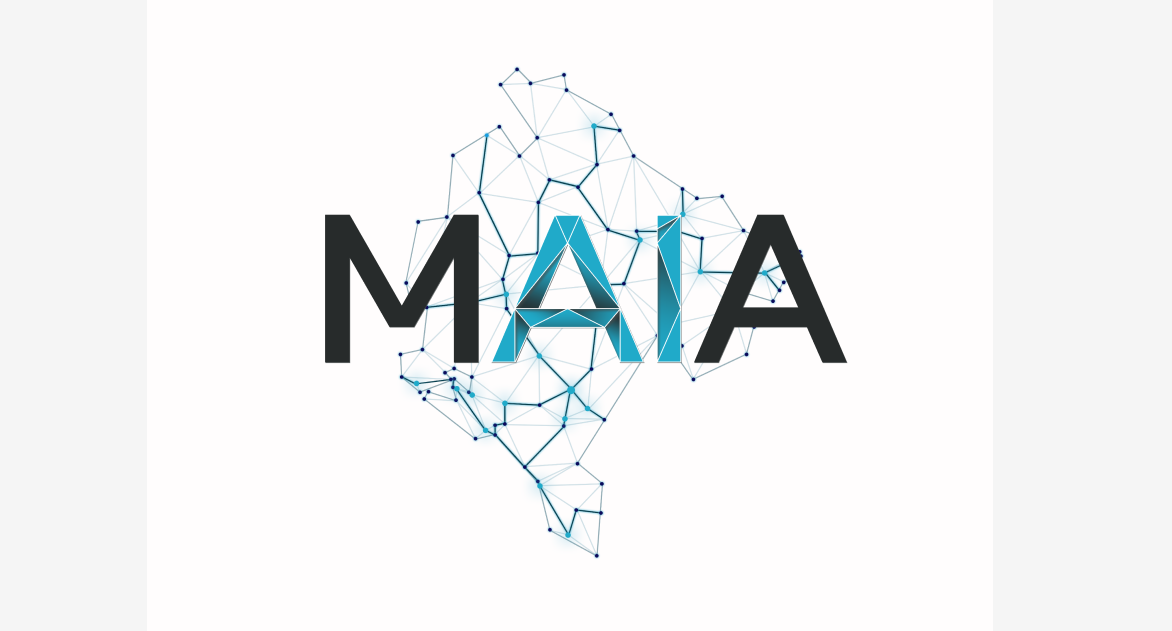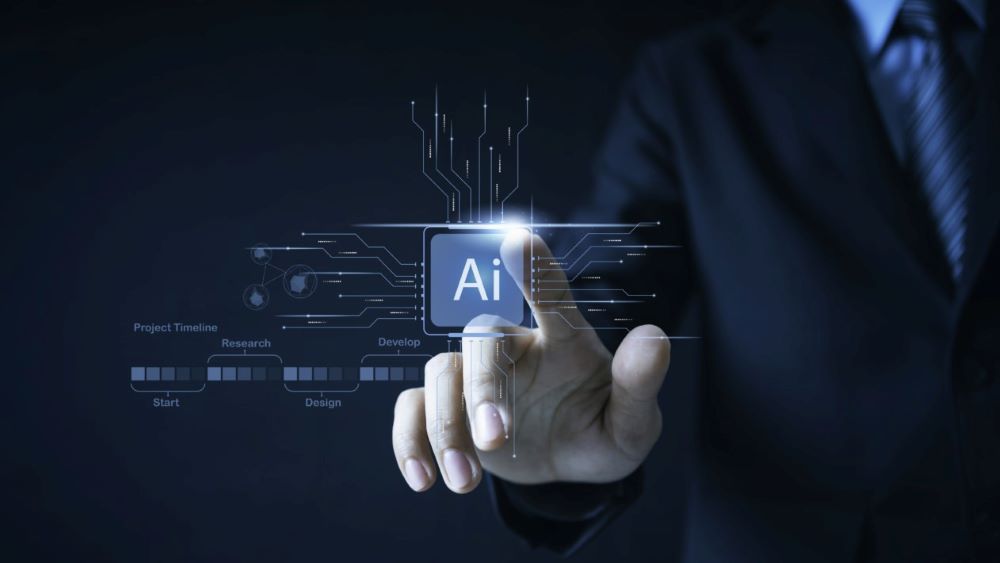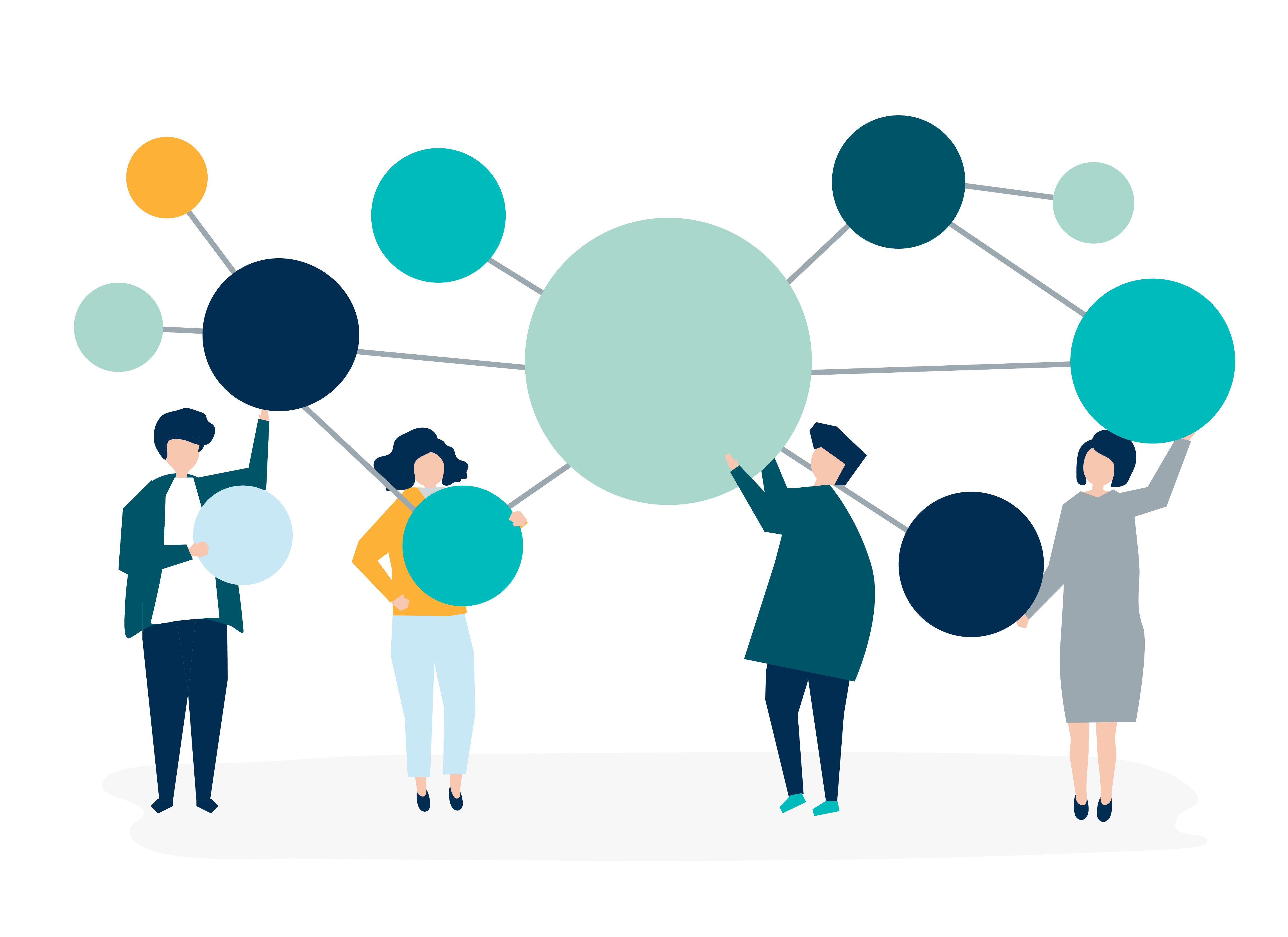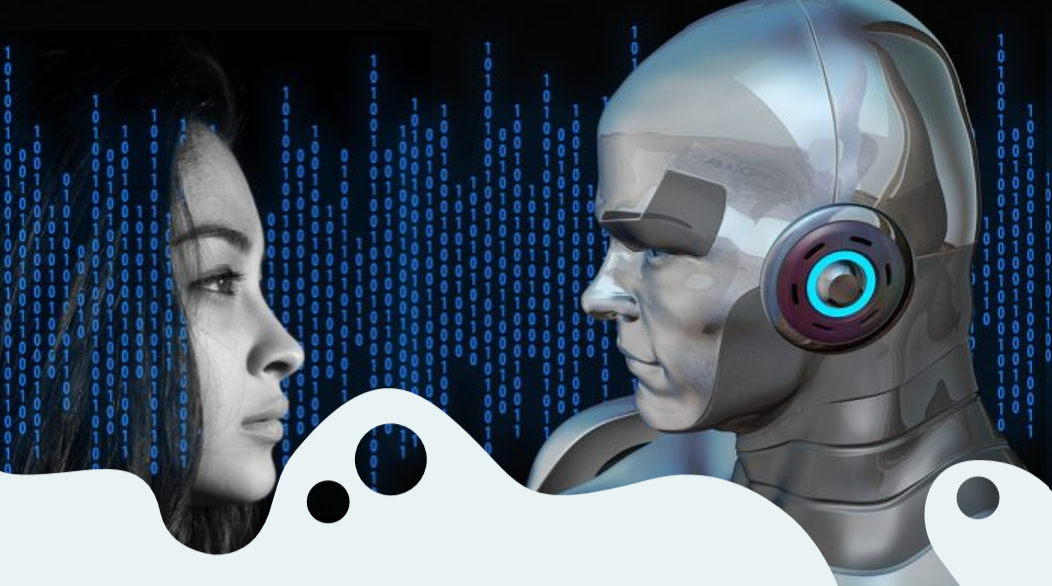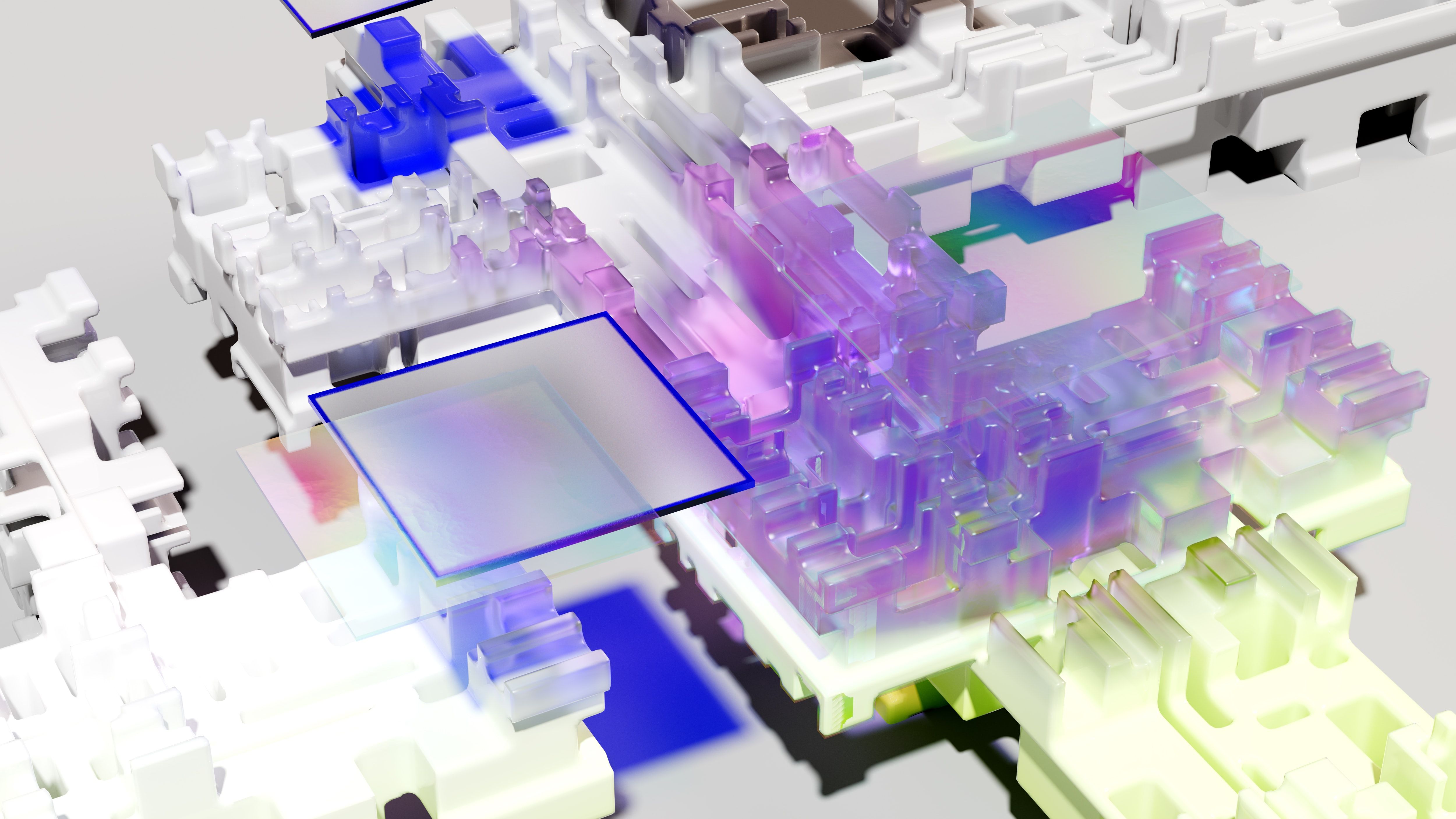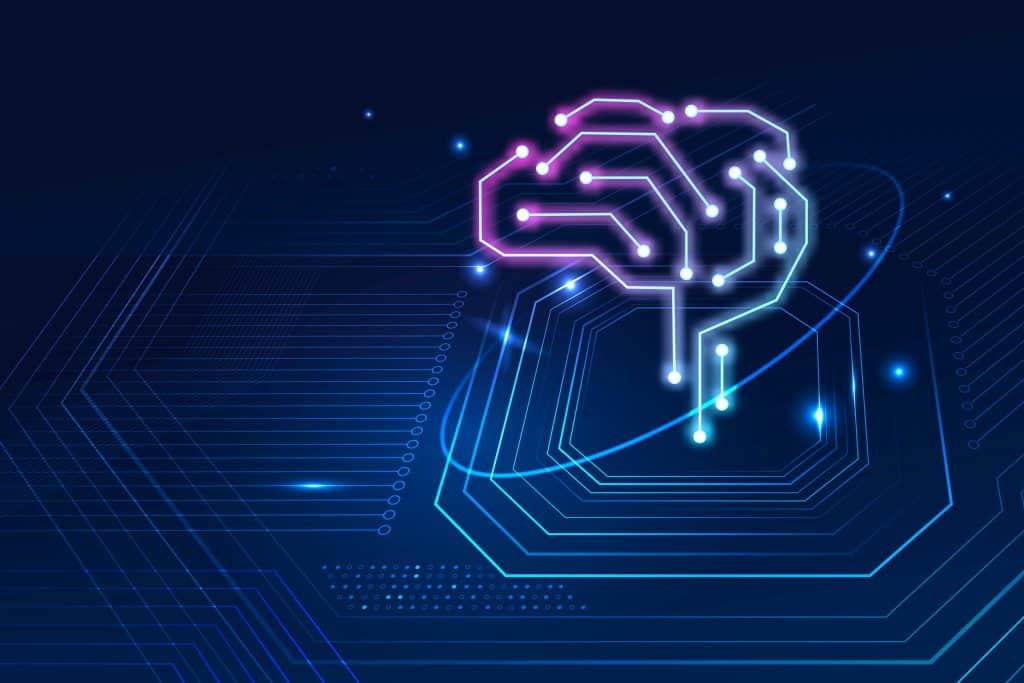
Our goal is to raise people’s awareness about artificial intelligence, and we are delighted to have seen a large number of AI enthusiasts at our MeetUps who want to learn, educate themselves, and advance in this field, or to inform themselves about ways in which they can improve their businesses.
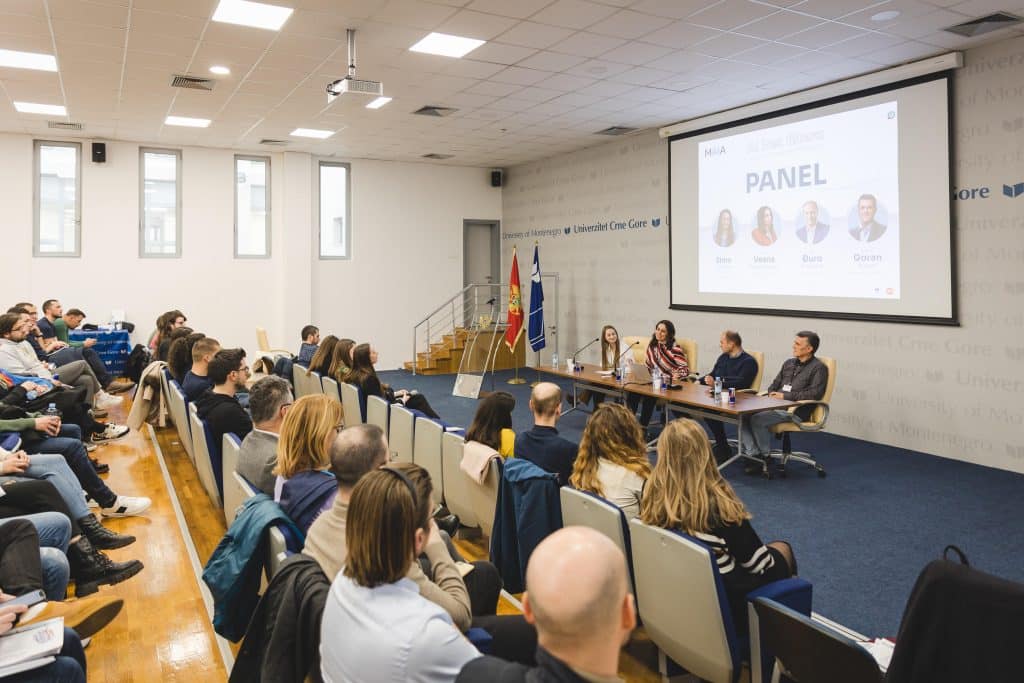
One of the most significant topics of today that is slowly but surely becoming an essential part of our lives is artificial intelligence. We spoke with representatives of the Montenegrin AI Association – MAIA, now an honorary member of the ICT cluster Cortex, Itana, and Nikola Bulatović, whose organization aims to research, promote, and implement artificial intelligence in everyday life.
Artificial intelligence represents an inexhaustible source of possibilities for improving our world, and MAIA focuses on finding ways in which this technology can enhance people’s lives in our community. The members of this organization have established themselves as leaders in the field of artificial intelligence, and their innovative approach enables the creation of a new paradigm in this area.
Learn about how MAIA was created, what their views on artificial intelligence are, what challenges they face, what impact artificial intelligence will have on our daily functioning and many other useful pieces of information related to this topic in the following text.
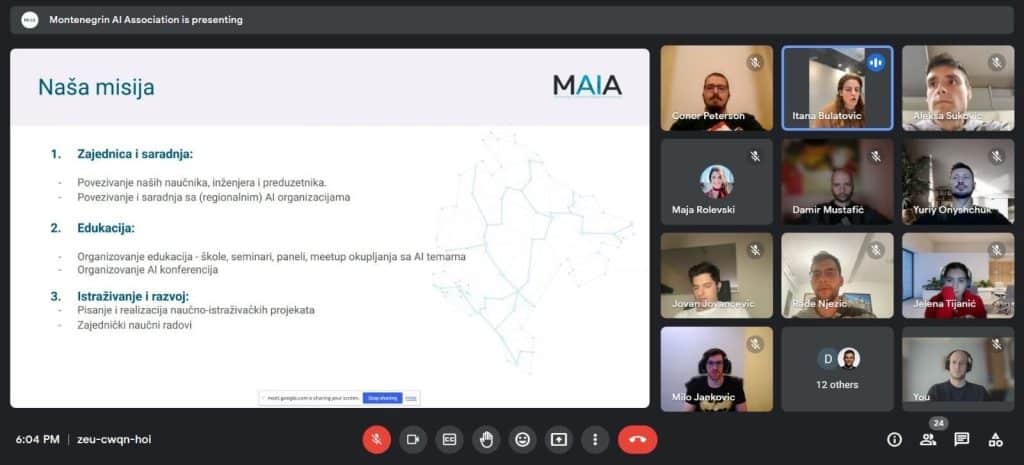
From a spontaneous idea to concrete action
When asked how they came up with the idea to establish an organization whose focus is on researching and implementing artificial intelligence, Nikola emphasizes that the initiative came about in a fairly spontaneous way:
“Given that we are engaged in similar research topics, we came up with the idea of uniting the AI (artificial intelligence) community in Montenegro. Our acquaintances with colleagues who are very successful in artificial intelligence research contributed to this, and we decided to start by gathering a small number of people and founding an NGO whose topic would be the development of this field.“
According to our interlocutors, at the very beginning, they focused on building the AI community. Their Slack group gathered a significant number of members in a very short period, who engaged in artificial intelligence, which also contributed to the inclusion of people from different spheres who began to give numerous ideas and suggestions, which was essentially the goal: to unify the AI community under one roof.
Artificial intelligence development: “a kind of magic” that has existed for over 40 years
As for the concept of artificial intelligence itself, our interlocutors state that it does not represent “some kind of magic“, but that there are scientific research and methods that can be used to prove whether a particular AI system has provided a solution to a specific question. Artificial intelligence as a science has been developing for decades and is by no means a new field. According to them, the revolutionary advancement of AI is thanks to the long-term accelerated progress of electronic computer chips and computer hardware, as well as working environments with which we can easily experiment with algorithms for processing large amounts of data:
“The current breakthrough of artificial intelligence has been built up over the past fifty years. The neural networks we use today were created in the 1990s, but could not be applied in practical applications because we did not have computers on which we could run an artificial intelligence system designed for widespread use. Due to the development of computer technology and the expansion of the large amount of data we generate on a daily basis, it was not until 2010 and later that conditions were created for artificial intelligence to become applicable. Only then do we have the opportunity to program artificial intelligence algorithms without having to use supercomputers. Thanks to all of the above, we now have tools that can process large amounts of information much faster, more efficiently, and meaningfully than we could before. Instead of processing a huge amount of data that someone had to analyze manually or using a computer, we can now replace the entire process with an AI algorithm that will analyze the data and extract useful information from it without the need for human intervention“, said Nikola.
The concept of AI is not so complicated, as Itana explains, emphasizing that the entire concept of artificial intelligence can be defined simply as the science of data:
“People who are typically engaged in this activity will simply say “data science“, which means the science of data, machine learning, or some other form of learning. The fact is that the mention of artificial intelligence opens up a variety of different debates. We can view this phenomenon as an umbrella, under which fall machine learning, deep learning, reinforcement learning, recommendation systems, and all other areas that can contribute with their data.”
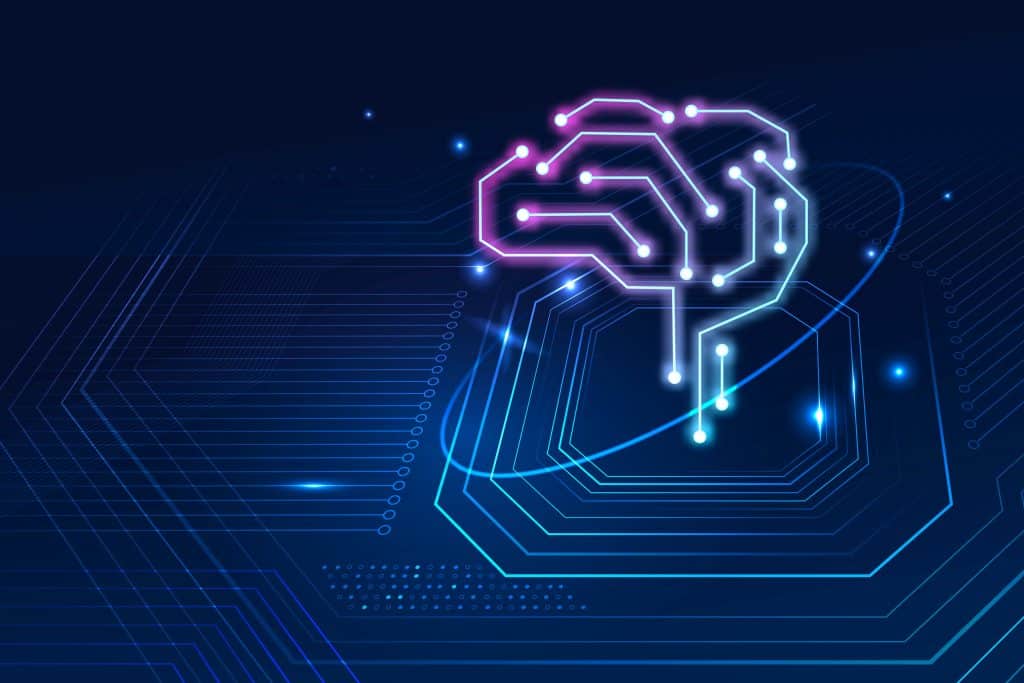
Focus on education and application of artificial intelligence
In addition to wanting to gather people with similar interests and contribute to the development of the aforementioned phenomenon, Itana and Nikola particularly emphasize that in the near future, they will focus on organizing educational programs, MeetUps, and conferences that will be accessible and, as they believe, beneficial to the wider community. Additionally, one of the focuses of their future activities will also be on scientific research with specific projects as their topic:
“None of us is an expert who knows everything absolutely, but we are here to learn from each other, which was ultimately one of our main goals. Of course, new focuses are added for the next period, such as expanding our community, organizing events of various types, research, and so on. Also, one of our priorities, which we cannot currently realize, but hope to achieve in a few years, is scientific research on concrete projects, where our engineers and scientists can work on practical applications. Primarily, we would like it to be in Montenegro, meaning that we would like to implement some of the AI solutions that would improve life in our community. Precisely because most of us come from the world of science, we would like to apply the knowledge we have by contributing to the development of our environment, using artificial intelligence.“
AI is not synonymous with robotics!
When the term artificial intelligence is mentioned, most people immediately think of robots and the wide range of achievements that have been made in the world of robotics. Our interlocutors explain to us that these concepts are not synonymous and that there is a significant difference between them, especially referring to the definitions and the connection of the mentioned areas:
“A lot of people equate artificial intelligence with robotics, which actually is not the case. We have to note that most of the known robots that can run, overcome obstacles, and so on, are not essentially based on artificial intelligence, but on control science. Specifically, the mentioned robot functions are based on mathematical functions that are calculated and relate to how it can be stable, how it can turn, and how its controllers can balance its stability. There doesn’t have to be artificial intelligence involved in that. Artificial intelligence would be if that robot had a camera and the ability to process data from it, see what is around it, and based on that information, make decisions on movement and so on independently. Such a system would use models that fall into the field called computer vision. Also, if it had some other type of sensor, it could collect information, process it, and then we could talk about artificial intelligence. Again, in that context, we return to the science of data that is detected by sensors, processed, and based on which a certain command is given.”
https://www.youtube.com/watch?v=-e1_QhJ1EhQ&ab_channel=BostonDynamics
AI Tools – Advantage or Threat?
We are witnessing a growing interest in products and tools based on AI technologies. Besides the interest, it would be wrong not to address the concerns of an increasing number of people who, according to many, are rightly afraid that artificial intelligence will take over the jobs they perform. When asked if these predictions will come true, our interlocutors gave us an answer that should relieve the vast majority of those who are concerned about their professions:
“We would not like to ask whether technology based on artificial intelligence will endanger our professions. We believe that they will only transform, and we will have to adapt our work to new technologies, as has always been the case. However, fear of change is often present, and people are often afraid of new tools that they may not be able or willing to learn. We understand these views to some extent, but generally, society has adapted to all the innovations that technological progress has brought over the past two decades. One example we can mention is the example from the book “Deep Thinking“, which describes very well the relationship that humanity has with technological innovations. From the beginning of the twentieth century, there was a system that enabled an automated elevator. Although this technology existed since 1900, it took until the 1950s (after the elevator operator strike in 1945) for it to be accepted because people were not ready to ride an elevator without an operator. Nowadays, the elevator is one of the simplest things we all use every day, and it took 50 years for the innovation to be applied. The point is that if new technologies are understood and used for benevolent purposes, they will surely bring revolutionary benefits to humanity. We should see AI as our assistant, not as a replacement because the role of these tools is to maximize our efficiency and productivity, both at work and in life.”
We talked about this topic at the previous MeetUp, called “ChatGPT – Chance or Threat?” If you missed it, you can watch it on our official YouTube channel.“
https://www.youtube.com/watch?v=xdLL30N7GBc&ab_channel=ICTCortex
Honorary membership in ICT Cortex
When asked about their expectations for membership in ICT Cortex and how they view their organization’s position in the cluster, which has over 30 member companies, our interviewees responded as follows:
“As for our expectations of membership in Cortex, when it comes to ideas and areas of activity, they are complementary and contribute to the development of the IT and AI world, in terms of raising awareness among people in AI fields. We particularly see collaboration in organizing MeetUps, where we bring together a large number of people who are interested in AI and whom we want to help based on our experience. Our main focus is on educating the public about artificial intelligence, and letting them know that it is not science fiction but something that can be of great benefit to us. Another thing we focus on, precisely to increase the visibility and story of AI, is participation in events such as the IT spot. We would like to have a conference where we invite several well-known world AI scientists who come from reputable companies such as DeepMind, Meta, OpenAI, Microsoft, and Nvidia.”
At the end of our conversation, Itana and Nikola wanted to take the opportunity to invite all those interested in this field to contact them, as they have founded the organization precisely to be easily accessible to all those people who are interested in the phenomenon of AI and who see potential benefits in it:
“We would like to invite all people who are involved in ecology, geography, medicine, and maritime – areas that at first glance have no connection to artificial intelligence – to contact us. Specifically, if anyone, from any faculty in Montenegro, or in the role of an activist, sees a problem and has an idea that we can solve using AI models, please contact us. These individuals do not need to know anything related to AI, it is only important that they have a concrete idea or data, and we will do everything in our power to solve the problem and contribute to their functioning and a better future for all of us“.
